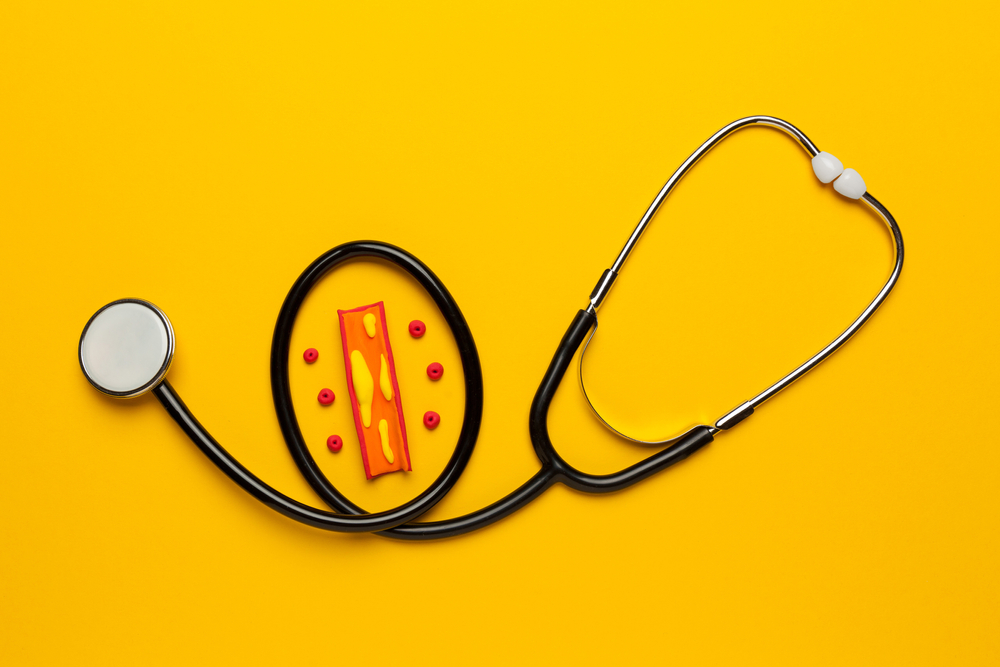If you walk into any pharmacy, you are likely to be met with a seemingly endless choice of supplements. A multivitamin may seem like the only supplement you need, but there are actually several others that are highly beneficial. Take, for example, fish oil supplements. They are currently very popular, with 8 out of every 100 people taking the supplement daily. This equates to a multi-billion dollar industry worldwide! So, is all this popularity based purely on hype, or is there some validity to the health benefit claims associated with using omega-3 supplements? Well, according to a new study, omega-3 supplements can reduce the genetic risk of high total cholesterol, LDL, and triglyceride levels. [1]
The Omega-3 Supplements Study

The University of Georgia recently published a new study on omega-3 supplements in The American Journal of Clinical Nutrition. The genetic data from over 441,000 participants was analyzed for this study. A score was then calculated to predict the genetic likelihood of having high LDL cholesterol, HDL cholesterol, total cholesterol, and triglycerides. While recent genetic study advances have allowed researchers to predict an individual’s risk of high cholesterol, they could still greatly improve. This is because up till now, these studies did not factor in different lifestyle choices, like consuming omega-3 supplements.
Read More: 13 Health Benefits of Cherries (Sleep, Heart Health, and More)
Results of the Omega-3 Supplements Study

The study showed that individuals who take omega-3 supplements have lower blood lipid levels than originally predicted, particularly for LDL cholesterol, total cholesterol, and triglycerides. This proves that taking lifestyles into account can significantly improve their genetic prediction calculations. The data showed that ingesting fish oil supplements could notably counteract an individual’s genetic predisposition to developing high cholesterol levels.
The Effect of Omega-3 Supplements on Genetic Cholesterol Levels

Having high cholesterol levels is a serious health concern because it can potentially lead to a number of cardiovascular issues. [2] LDL ( Low-Density Lipoprotein) cholesterol is typically known as “bad” cholesterol since high levels can result in a buildup of cholesterol in your arteries. Consuming a diet that is high in trans fats, saturated fats, and cholesterol can significantly increase one’s LDL levels. This can lead to serious health issues such as atherosclerosis, heart disease, stroke, and peripheral arterial disease.
The Health Risks Associated with High Cholesterol

When there is too much LDL cholesterol in a person’s blood, it can slowly build up in the inner walls of the arteries that supply blood to the brain and heart. Along with other substances, it begins to form plaque, which can lead to a condition called atherosclerosis. [3] This condition results in a hardening and narrowing of the arteries. As these arteries start to get narrower, less blood is capable of flowing through them. This can potentially lead to heart attacks if a blood clot completely blocks the artery. If it happens to be an artery that leads to the brain, then there is a risk of having a stroke.
Read More: 12 Health Benefits Of Ginger – Nausea, Pain, Inflammation, Heart Burn, And More
Prevention of High Cholesterol Levels

According to the Centers for Disease Control and Prevention, every 1 out of 4 Americans suffer from high cholesterol. This equates to around 86 million adults in America, with millions more likely to develop issues due to genetic factors. For those born with a genetic predisposition to high cholesterol, finding ways to counteract it is of vital importance. Luckily, there are several ways to control one’s cholesterol, such as exercising and adopting a healthy diet. According to the study, taking omega-3 supplements is linked to developing a healthy lipid profile. The study also found that taking omega-3 supplements raised HDL cholesterol levels. HDL (High-Density Lipoprotein) is referred to as “good” cholesterol since it aids in the removal of other types of cholesterol from your bloodstream.
The Benefits of Omega-3 Supplements

Omega-3 is derived from sources such as fish oil, flaxseed, and algae oil. [4] Along with the health benefits associated with balancing cholesterol, there are several more benefits worth mentioning. Omega-3s are essential for brain development and maintaining healthy brain function. They also improve cognitive function and are connected to a lower risk of developing cognitive decline diseases, such as Alzheimer’s disease. Omega-3s can also reduce inflammation in the body. This is beneficial for individuals struggling with conditions such as asthma, arthritis, and inflammatory bowel diseases. Regular intake of omega-3 supplements can also reduce the risk of macular degeneration, a leading cause of vision impairment.
The Bottom Line

There are many other health benefits associated with taking omega-3 supplements, such as improving mental health, skin health, and bone and joint health. However, the most significant takeaway from the study is its impact on certain genetic predispositions, such as LDL levels. The study has provided positive results for those with a genetic predisposition to high cholesterol. It has shown that there are ways to counteract high cholesterol effectively and naturally.
Read More: 8 Health Benefits of Lecithin
Sources
- “Fish oil supplementation modifies the associations between genetically predicted and observed concentrations of blood lipids: a cross-sectional gene-diet interaction study in UK Biobank.” AJCN. Yitang Sun, et al. July 15, 2024
- “High Cholesterol Diseases.” Cleveland Clinic
- “Cholesterol and Artery Plaque Buildup.” WebMD. Matthew Hoffman, MD
- “Omega 3 Fatty Acid.” Science Direct. Khadijeh Abhari, Amin Mousavi Khaneghah. 2020.

